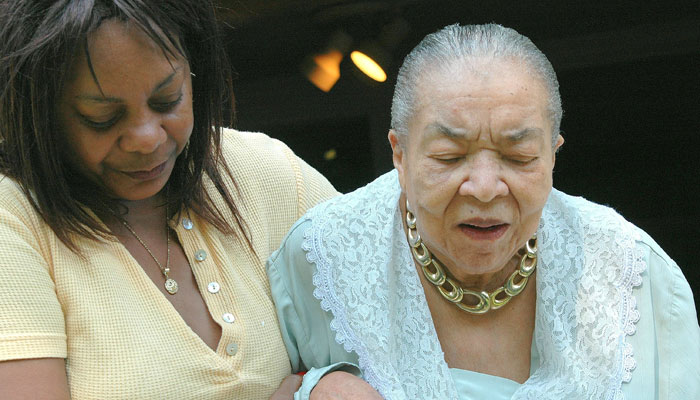
No one can keep an eye on another person 24/7. Even in the most vigilant household, a loved one with dementia—Alzheimer’s or other memory disorder—may just find a way to slip out the door. After you have set up strategies to reduce the chance of wandering, it is also wise to pave the way for a speedier recovery if the worst occurs.
Strategies that support a quick return
- Get an ID bracelet or necklace. Be sure to note “Memory Loss” and “ICE: [your phone number].” First responders know that “ICE” stands for “in case of emergency.”
- Introduce your loved one to neighbors. Give the neighbors your phone number and ask them to call you if they see your relative out and about. You can even ask local merchants who know him or her to do the same.
- Keep a recent photo on hand. Only a recent photo—not a favorite photo from 10 years ago!—will truly help first responders if they must look for your family member.
- Make a list of possible destinations. Include your relative’s favorite places. But also list familiar places from the past: work, church, a previous residence.
- Add GPS sensors on shoes or in a bracelet. These sensors can trigger an alarm on a door and/or help locate someone who has wandered. Some require a monthly fee.
- Register with the local police and consider a Safe Return type of program. The Alzheimer’s Association sponsors a nationwide “Safe Return” program that is networked with local law enforcement. If your family member wanders, one call triggers an alert for help. A special bracelet also provides anyone finding your relative a number to call.
If your loved one does get out, spend 15 minutes looking close by. Then call 911 and any other services you have in place.

